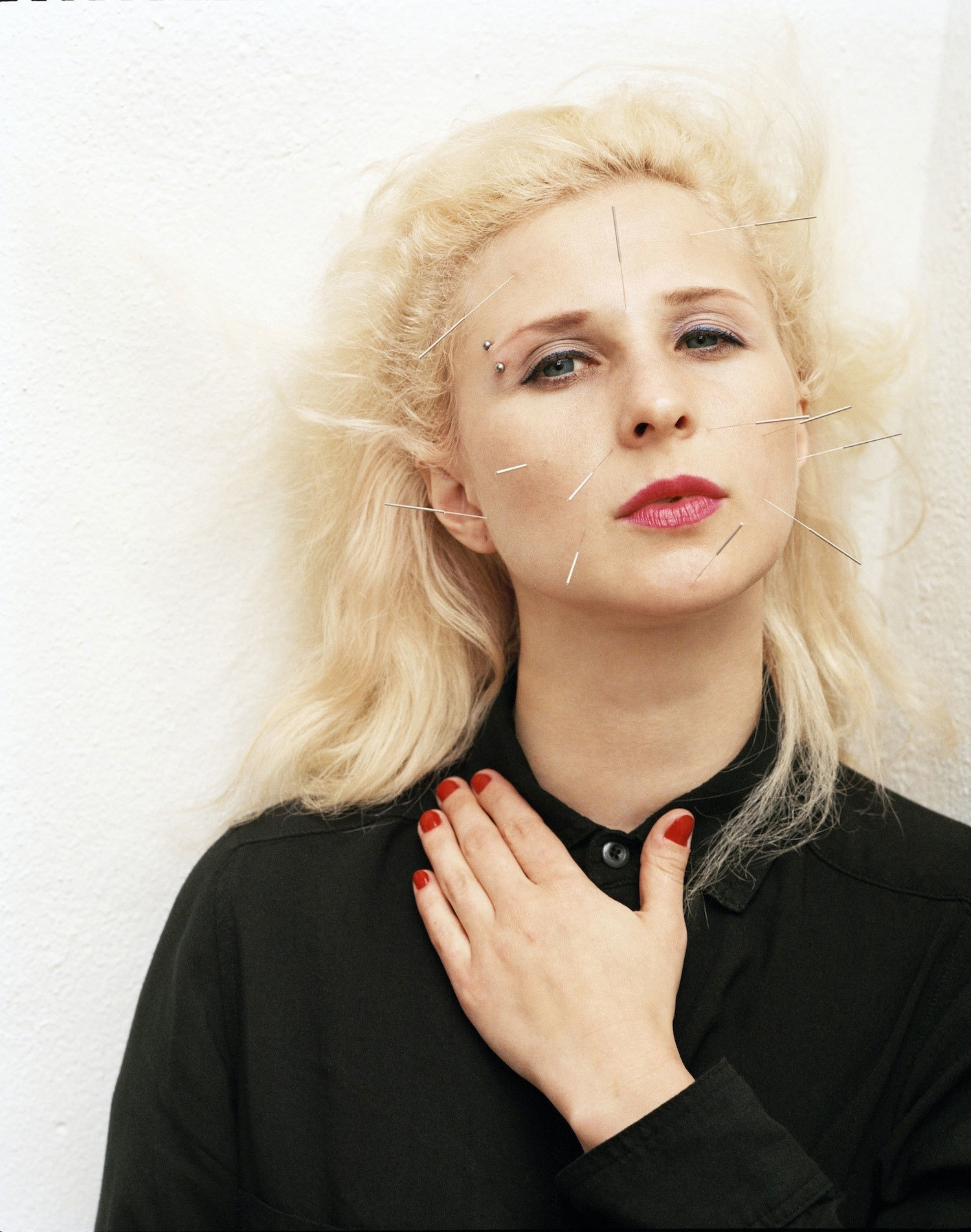Nadezhda Tolokonnikova and Maria Alyokhina are the fresh-faced girls who managed to spook Putin. While Pussy Riot’s public persona may be punk, they’re applying their ideals and wry humour to building institutions that challenge the country’s worsening repression.
It’s eighteen months since Masha (Alyokhina) and Nadja served two years in a penal colony, and Russia has since occupied the Crimea and cracked-down even harder on liberal values, civil rights groups and self-expression. The duo have used their freedom to set up a human rights organisation, Zona Pravda, and an independent news site, Media Zona, that fights corruption and prison abuses, whilst also travelling frequently to the US and Europe collaborating with musicians, artists and civil society to rally against corruption and social injustice — be it racism, police brutality, homophobia or censorship, anywhere.
Masha was in London this week to give a talk on justice and action. Behind a glint of white blonde hair, she seems demure and self-effacing, but her thoughts are direct and delivered with a sly smile. Tellingly, the struggle is always defined as a unified ‘us’ against an omnipresent, anonymous ‘them’.
i-D caught up with her to talk about art, politics, pranks and living by your beliefs.
How has it been adapting from life in prison?
It’s strange because you go from seeing just five or six people with whom you’re friends in prison, to hundreds of people every day. That, and I spent some of the year in solitary confinement because I was considered a ‘problem’ prisoner. I was writing reports about the prison’s conditions and the media was writing about me. But that’s where our human rights work started from, so everything is useful.
I Can’t Breathe is dedicated to Eric Garner, a black man who was killed by police brutality in New York. How do Russia and the US compare to you?
We live in completely different worlds. In America it may be common to have protests, but in Russia there are none. Eric Garner was a regular guy and 50,000 people protested his murder. In Russia you can have a political murder outside the Kremlin Walls and there is no one. The song is dedicated to Eric Garner but it’s about us and our situation in Russia.
Who’s important in Russian culture today?
Small music groups and feminist artists, for example the guys who are performing today, who we work with, Scofferlane and The Jack Wood. They’re trying to do something impossible in Russia: make contemporary music. There’s no money in it and if they’re connected with us they’ll cancel their stuff.
Collaborations seem to be important.
It breaks Russia’s isolation. Putin’s political strategy is to isolate Russia and create a Russian world, so we have to build these connections with the world. Artistically, I believe art has no borders, so if we make statements together, we are together.
How do you fund the Zona Prada and Media Zona?
Our speaking fees. All the money we have we give to the team. But we’ve never done this before, so we’ll learn as we go. For now we’re just “first-years” in this world of organisations.
You navigated the arrest, court cases and release astutely
When you live every day with a thirst, knowing that they can crush all your work tomorrow, it pushes you to protect yourself, to grow and do things.
Who inspires you?
Gandhi and Alexander Navalny, a Russian opposition leader. They gave him a choice to leave the country but he didn’t and he’s now under house arrest. I believe if you build your life on these strong gestures, you will become figures. No one is perfect, especially not us, but you can feel proud when you make a statement.
Who is in Pussy Riot now?
It depends, three of us have been in prison and yes we are probably the most recognisable, but the other girls are all in Moscow and we build the strategy together and work on different projects. There are no leaders and there is no hierarchy.
How do people see you in Russia?
[Laughing] We’re freaks everywhere.
Your videos are quite funny.
Thank you. If you cannot laugh about a situation, if you lose your humour, you can’t live.
And do the authorities answer back?
They have their own special jokes. In the penal colonies for example, the guards used a rubber baton for torturing people that they called an “argument”.
What do young people think about politics in Russia?
People are anti-Putin but the government’s created a political environment where you cannot express your political views so no one knows anything about each other. They talk in kitchens and bars, and people use social media to organise, like Twitter and Facebook, but they can block you easily any day.
What do you think the future holds for Russia?
The future depends on us. We will use the justice system and we will write about it. Putin will not go by himself, not until he dies. So we need something like a revolution.
How can you realise a revolution?
A revolution happens in little steps and by responding. We haven’t made any miracles so far, we’ve just reacted. If you see something, you have to respond.
We had our revolutions a while ago in the West.
Here you have to find other ways to express something. In Russia it’s simple. Everything in Russia is political and it’s impossible to be out of politics. To be out of politics is a political statement.
And what advice would you have for people in the West?
Pay attention to what your politicians are doing because if you live wearing ear-plugs, some day your government could become like our government. Control your politics — really.
Credits
Text Sharon Thiruchelvam
Photography Bruce Weber
Photography assistance Chris Domurat, Ryan Brinkmann, Jeff Tautrim.
Production Little Bear Inc.
Production assistance Reynaldo Herrera.
Shot in Golden Beach, Florida.
